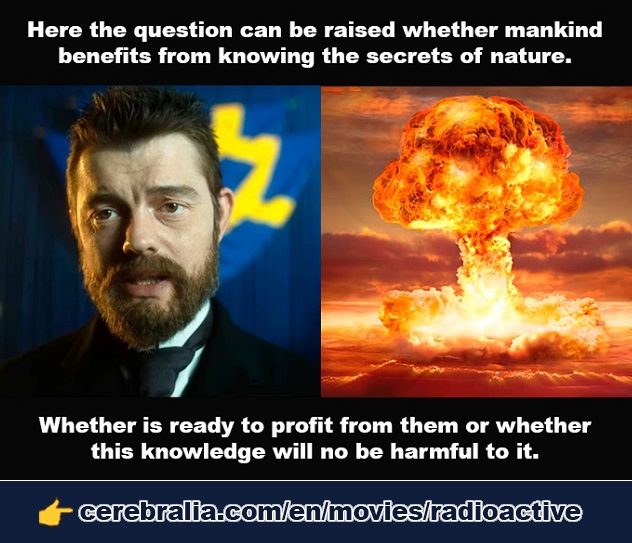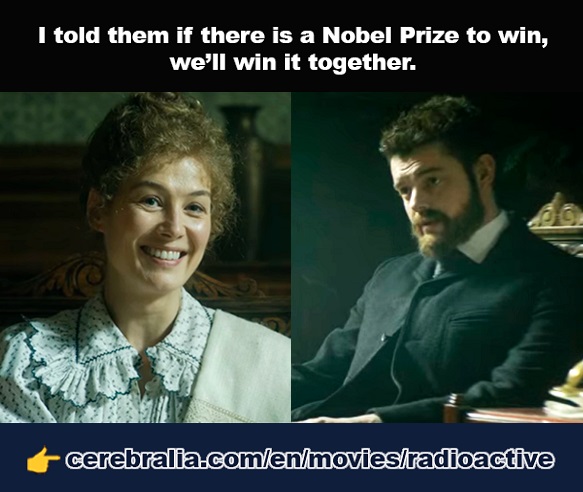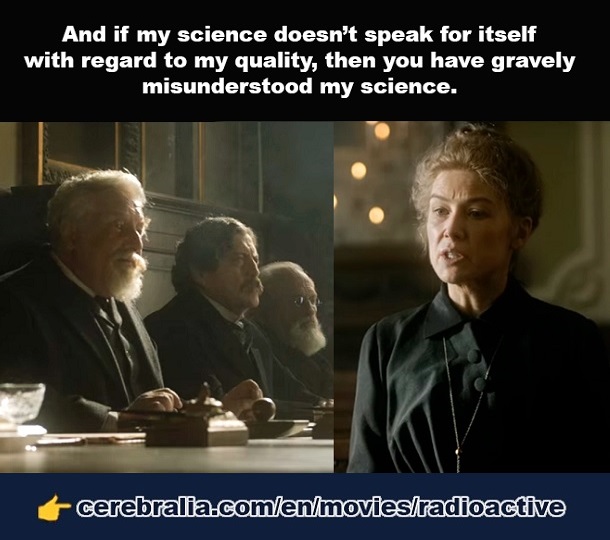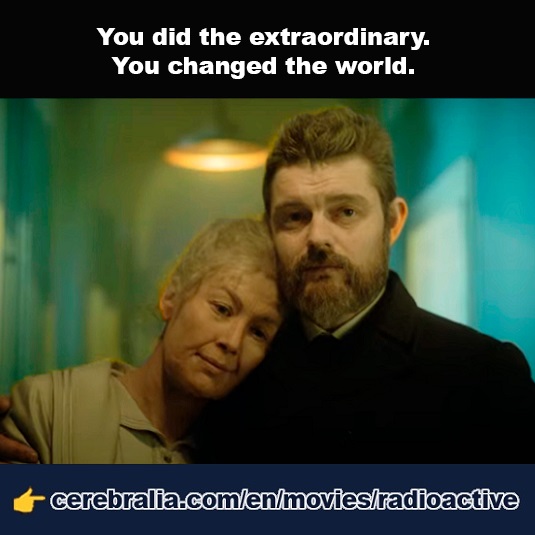Share on:
Radioactive - Review And Summary
Radioactive is the incredible, true story of Marie Curie and her ground-breaking scientific achievements that revolutionized medicine with her discovery of radium and polonium, ultimately changing the face of science forever. Curie was the first person and only woman to win two Nobel Prizes, and the only person to win them in two different scientific fields, physics (1903) and chemistry (1911).
Radioactive is a 2019 British biographical drama film written by Jack Thorne, directed by Marjane Satrapi and starring Rosamund Pike as Marie Curie. The film is based on the 2010 graphic novel Radioactive: Marie & Pierre Curie: A Tale of Love and Fallout by the American artist Lauren Redniss.
What is the movie Radioactive all about?
In 1934, Paris, Marie Curie (Rosamund Pike), collapses in her lab. Marie met Pierre Curie (Sam Riley) in 1894 at a random street when she ran into him and Pierre saw her book and saw she is interested in radioactivity.
Marie feels she is not respected as she is a female and Polish, and her experiments and lab equipment at the University of Paris are constantly moved without her agreement. After complaining about it, Professor Gabriel Lippmann, shut her out of her lab for her unorthodox pursuits.
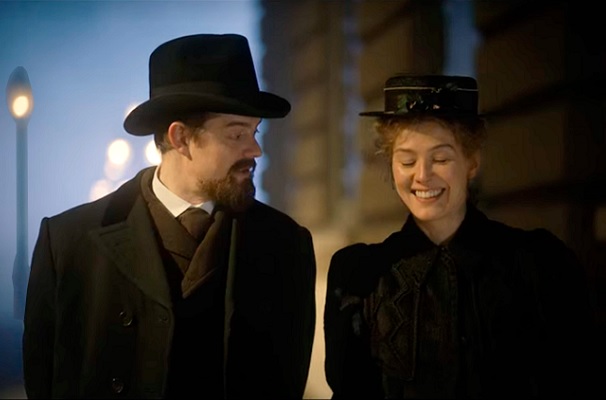
Marie runs into Pierre again at the theatre and is shocked to know that Pierre knows her name (she is one of the only 23 female scientists in Paris, has read her paper on magnetic properties of steel, and has heard of her fight with Lippmann). Pierre is a renowned scientist and offers his lab for experiments to Marie. He proposes a partnership with Marie.
At dinner with their friend Paul Langevin and his wife, Pierre explains in detail the process of how they take the ore and use science to remove all the elements they know. Marie explains that scientists have found uranium to have reactions – she believes that uranium has a powerful force in it, and that the reaction comes from the element itself.
Afterward, Pierre admits his attraction to Marie. Though at first, she isn't sure, not wanting anything to get in the way of their work, he proposes to her, and she accepts. They get married soon after.
Pierre surprises Marie after their honeymoon with a brand new research space where they work along with Paul, their lab associate. They continue researching for four years, and eventually have a baby girl, Irene. Eventually, they discover two new elements – polonium and radium.
They present their shocking works to the science community, and Marie explains that she calls the waves coming off of the element «radioactivity». The news makes the papers, a groundbreaking discovery. The results are accepted by the scientific community and Pierre makes professor at a prestigious university.
In 1903 Marie and Pierre win the Nobel prize for discovery of radioactivity. Pierre talks about the dangers of radioactivity. Marie is very angry at Pierre for going to the ceremony alone (Marie had just given birth) and she thinks Pierre stole her brilliance and made it his own.
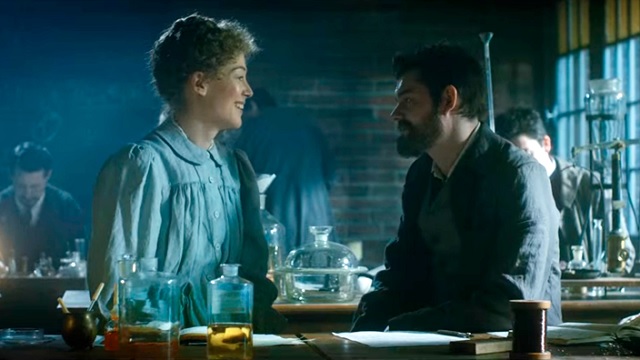
Soon afterwards, Pierre has a coughing fit on the street and suddenly runs into a horse carriage and is trampled to death by a horse. Marie is inconsolable. Depressed, she begins an affair with her colleague Paul Langevin. Later, Marie is offered Pierre's job at the university and she starts teaching there.
Soon, Paul's wife releases details of their scandal to the French nationalist press, that reports the details of her affair with Langevin and she is harassed by xenophobic mobs due to her Polish origins and is asked to leave France. Paul leaves Marie under threat from his own wife.
Marie wins the Nobel prize again in 1911 for chemistry. She goes to Sweden for her acceptance speech and is greeted enthusiastically by all the women in attendance.
Irene grows up and is a nurse in World War I. she asks her mother to make the war her own war and do something about it. Marie approaches Lippmann for funds to device a mobile x ray unit that could determine if troops need amputation at the fronts, before their limbs are chopped off. She gets her funding. The machines work and start savings lives and limbs on the battlefield.
As she dies in 1934, she sees visions of all the times in her life before awakening in a hospital room. Pierre arrives and they leave the hospital together.
The film concludes by stating that: When Marie died she was buried next to Pierre. The Curies' mobile unit X-rayed more than a million men during the war «saving countless lives». Irene and Frederic got married and won the Nobel prize for their discovery of artificial radioactivity in 1935.
Flash-forward scenes
The director Marjane Satrapi chose a «back to the future» approach to show how the Curies' work later impacted the world. Some scenes jump to the future to show that for every accomplishment, there awaits a repercussion of their scientific discoveries.
Marie Curie proudly announces that she and Pierre have found two new elements —radium and polonium— and the film leaps ahead in time and place to 1957 in Cleveland, Ohio, where a doctor is explaining to a worried father that a new process called radiation can help save his little boy who's suffering from cancer.
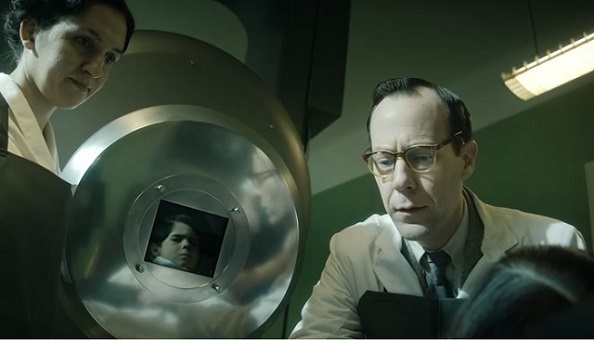
As Pierre accepts the Nobel Prize in Stockholm in 1903, we see the Enola Gay preparing to drop the atomic bomb on Hiroshima in 1945. The Enola Gay became the first aircraft to drop an atomic bomb in warfare.
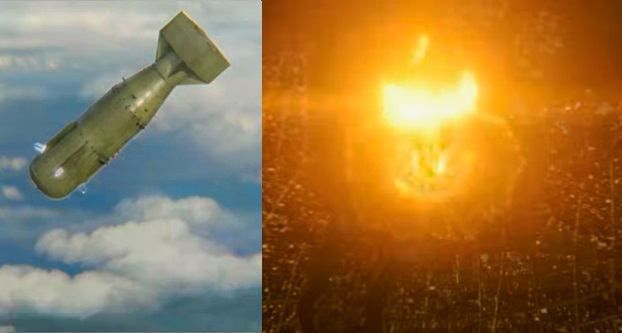
The most drastic of these interludes comes when Marie is at her lowest. Marie goes to the mystical practitioner to find that she's died, but she begs her assistant to make Pierre appear. Just then, a flashforward shows the Chernobyl nuclear meltdown in 1986.
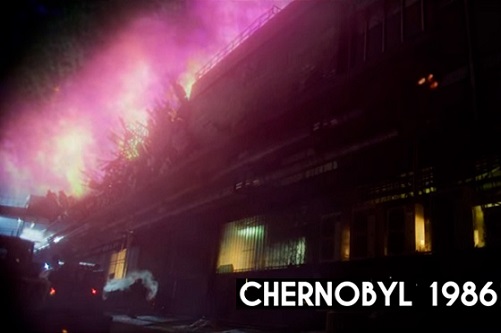
Connecting the dots in this way is a little bit distracting but it does show the astounding impacts the Curies' transformative work would have on the history of the world.
Best quotes from Radioactive movie
«It can be thought that radium may become very dangerous in criminal hands. Here the question can be raised whether mankind benefits from knowing the secrets of nature. Whether it is ready to profit from them or whether this knowledge will not be harmful to it.»
«The example of the discoveries of Nobel is characteristic, as high-power explosives have enabled man to perform wonderful work. They are also a terrible means of destruction in the hands of great criminals who would lead the peoples towards war. I am one of those who believe, with Nobel, that mankind will derive more good than harm from these new discoveries.»
Pierre told her wife Marie Curie «Our work's been nominated for the Nobel Prize. For our discovery of radioactivity. The commendation only mentions my name and I told them if there is a Nobel Prize to win, we'll win it together.»
Professor Lippman calls Marie Curie in to interview her to take Pierre's position as professor. She says she doesn't want the job but will take it, and refuses to be hired for anything other than her work. She said: «And if my science doesn't speak for itself with regard to my quality, the you have gravely misunderstood my science.» Marie is given the job, and becomes the first female professor at the sorbonne.
At the end of the movie, in the hospital, the elderly Marie sees Pierre and tells him she hates hospitals. He walks her through the hospital, and he praises her and tells her she did the extraordinary and changed the world. They share a kiss.
🥇 Movie review & film summary:
✅ Paradise: selling our age in exchange for money
✅ Oppenheimer: about the father of the atomic bomb
✅ Sound of freedom: about the world of child sex trafficking
✅ The Pope's exorcist: based on the life of the chief Vatican exorcist


